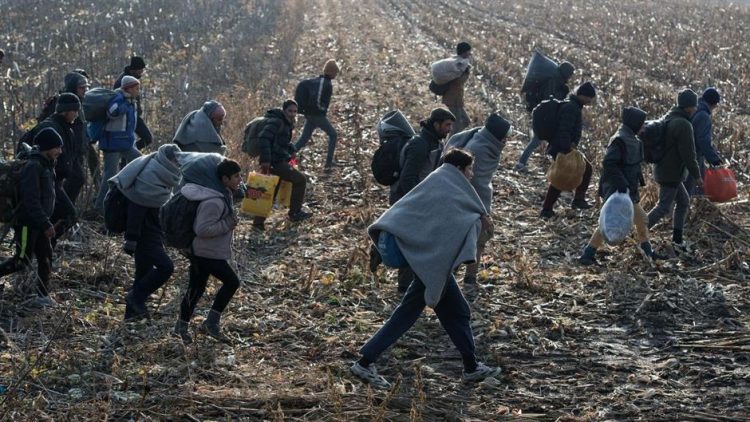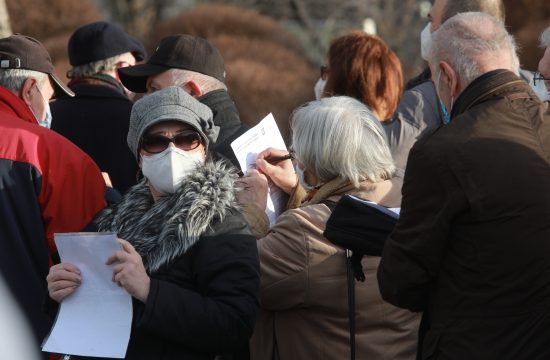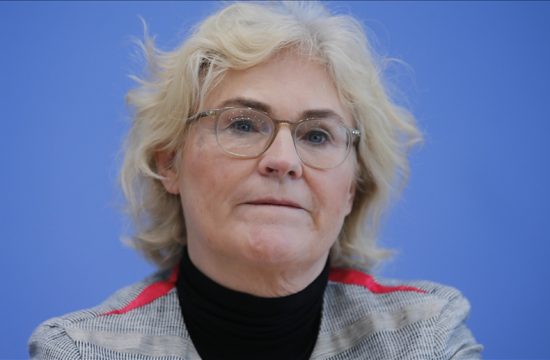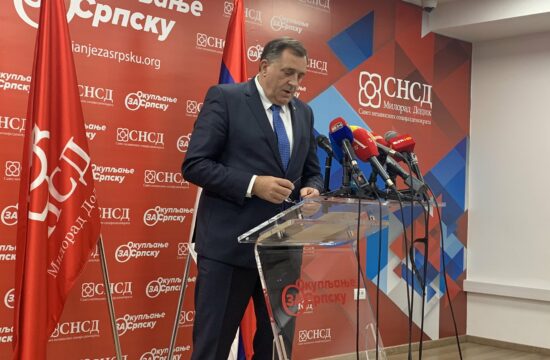
Teams of the European border guard agency Frontex will soon be deployed on the border between Croatia and Bosnia and Herzegovina in response to the pressure of migrants travelling westwards, EU Commissioner Vytenis Andriukaitis said on Thursday.
However, Andriukaitis added that the brunt of responsibility for managing the border lies primarily with Sarajevo and Zagreb.
“Negotiations with Bosnia and Herzegovina concerning the deployment of Frontex teams have been completed, and an agreement will be signed soon. That agreement will enable border police to manage the border between Bosnia and Croatia… However, the most important responsibility is in the hands of those two countries,” Andriukaitis said during a debate on migrants in Bosnia stuck near the border with Croatia, which doubles as the external border of the European Union.
Andriukaitis added that there are currently 5,139 migrants and asylum seekers housed in centres in Bosnia and Herzegovina, including some 3,100 are located in northwestern Bosnia near the border with Croatia.
In addition, about 1,000 migrants have still not requested assistance, he said in a plenary session of the European Parliament dedicated to the issue of migrants in Bosnia, moved by Croatian MEP Ivan Jakovcic (IDS/ALDE).
Andriukaitis said that since June this year the European Union had allocated around €2 million to Bosnia in humanitarian aid, and another €7.2 million through special measures and funding and pre-membership support, and that the funds are disbursed with the assistance of the International Organisation for Migration (IOM), UNHCR and Unicef.
“Over the past few weeks, Bosnia deployed 180 additional police officers to improve security on the border,” Andriukaitis said.
He said that there was information that Croatian police were abusing migrants on the border with Bosnia, adding that the European Commission is actively monitoring the situation and had informed Croatian authorities of those accusations.
Andriukaitis said that the agreement on re-admission should be applied to migrants who illegally cross the EU border.
“It should be applied without questioning the right to asylum and the obligations that arise from international law, particularly the principle of banning forced re-admission… We all agree that the border between Bosnia and Croatia is the EU's external border and Croatia is responsible to manage that border,” he said.
In the ensuing debate, Croatian MEP Ivan Jakovcic (IDS/ALDE) said that he had proposed the debate because of the difficult situation the stranded migrants are in, but also because of the problems the local population is facing.
He added that the situation appeared to be chaotic, because on the one hand Croatia was being called out because of alleged mistreatment of incoming migrants, while on the other hand it was expected to protect the EU external border.
MEP Tonino Picula, (SDP/S&D), recalled that in spite of Croatia having the longest external EU land border, the country has not resorted to raising razor wire fences like its neighbours.
He added that the 6,500 migrants currently in Bosnia and Herzegovina were staying in improvised accommodation close to Croatia's border, which itself increased the chances of illegal crossings into Croatia.
Follow N1 via mobile apps for Android | iPhone/iPad | Windows| and social media on Twitter | Facebook.




